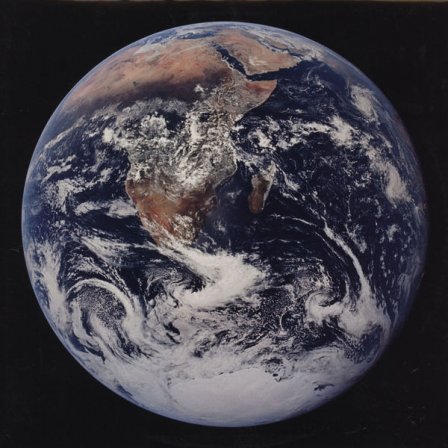An album named I Love You with a picture of planet Earth on the cover? Really? What is this, the new Yoko Ono album? (Dude’s been there, apparently). Isn’t this a little too earnest and holistic for our, um, epoch? But Baltimore experimentalist and former Wzt Hearts member Jason Urick is really just cheerfully paraphrasing what’s actually both socially and sonically obvious about said epoch. As “A”rt (insofar as any of it can be rendered in binary) detaches from the mothership of capitalism, both consumer and producer must, arguably, be driven by Love or Nothing et al. A nasty dichotomy, perhaps, but it’s nice to see Urick openly announce his allegiance to the probably-losing side. Meanwhile, seems like everyone from Natural Snow Buildings to BEBETUNE$ has been perfecting the sonic stew, the artifact and embodiment, Urick’d say, of love for the human race and planet Earth. Leave them alone! Begone, foul cynic!
I Love You, icy though its alternate cover’s “Earth” may be, has that glow about it. Urick’s self-described “obsession” with reggae a couple years ago, which on Fussing & Fighting gave warmth and heft to those glaciers on his solo debut Husbands, seems wrong to bring up now — not just because, despite a dubby keyboard or melodica here and there, the tag’s straight-up misleading; nor because the genre’s sentiment comes off as flat and outdated as Y. Ono’s; but because it can only be a divisive and atomistic sound bite for an album that is about, more than anything, that ache to zoom in, to get closer, to reenter the Earth while keeping the whole thing in scope.
Take “Ageless Isms,” a song that may as well live in the perpetual shadow of those systemic monoliths its title suggests. Built upon a loop that’s evocative yet barely out of the ear’s reach, an aberration converging on a sort of leaden tango, “Ageless Isms” has already conjured a powerful sense of something libidinal and mysterious behind a dense thicket of tape hiss by the time you first hear that slice of flanging noise that — you’re spontaneously convinced — has to be human voices. This is a disturbing conviction. It’s just a bound, repeating loop of static: it might’ve been academic, a highfalutin exploration of texture or whatever, but instead it’s about humans. (Careful: a culture, even, though too transfixing to be educational and too close to sheer noise to be appropriation or exotic-“Ism”). The loop also manages to be, despite its obfuscation, both immediate and urgent; that maddening tangle of voices gets more vicious as the manipulations continue, frustrating the listener’s need to fit it into the whole.
Urick’s occasionally stark attention to smaller units like these, and their capacity to fracture even a lumbering and unstoppable piece, is what distinguishes him from the lineage of Sean McCann and NSB. If those hippie-dippie-droners create ambient music that doesn’t abstract itself from the jetsam of nature, acknowledging the teeming mess that cancels out to silence (totally doesn’t) and its various threats, Urick confronts those threats directly and singly, with reverence and almost with a sort of discipline. “Don’t Digital,” the album’s 11-minute centerpiece, at first seems to be structured entirely around a pitch-shifted vocoder line that sounds almost like a toddler’s singsongy potential-tantrum-onset-alarm. Urick dices it up; layers it in eerie intervals. His goal, at least initially, seems to be to terrify us with the playful like so many horrorfilm clowns. But the track’s focalization shifts, it almost-imperceptibly somersaults through variants that never quite sit comfortably — including a fuzzed-out regal fanfare that keeps falling out of step with the percussion — and dissolves into an asphyxiated pile of reflexive theatrical gestures.
“Don’t Digital” also decelerates noticeably during its last minute or so, in no linear or measured way. But something about the gummy aesthetic of the viscera at work here keeps I Love You from sounding too awry when its elements seem to suffer from slight exhaustion, elasticity, endocrine peaks, biological decay. These days, it’s the electronic musicians who have the devil-may-care to snap off Snap To Grid whose work has wings, which is part of the reason that — even though Urick’s more concerned with the threat of the immediate than the splinters of memory — Dylan Ettinger’s New Age Outlaws leaps to mind: imperfection is built into the music itself. Even the Harmonia-esque “The Crying Song,” despite being the closest track here to some tamely concordant sequencer pileup (and a misleading single at that), relies on imprecise stretches of vamping to jab out its best moments serendipitously.
And that, in the end, is what will turn heads about this album: since its pieces aren’t structurally (or culturally) snug, they rattle. Urick’s exactly the sort of gray-bearded, chain-smoking dude with a laptop that we can all get behind — unpretentious, driven by an old-fashioned love of planet Earth, aware that love and planet Earth are messy as hell, and prepared, sleeves rolled up, to get his hands dirty. Why his type should be so rare is another question, and it’s telling that an album like I Love You is only otherworldly insofar as, with our own trained eyes and ears in this relentlessly geometric space, our own world has become otherworldly.
More about: Jason Urick

